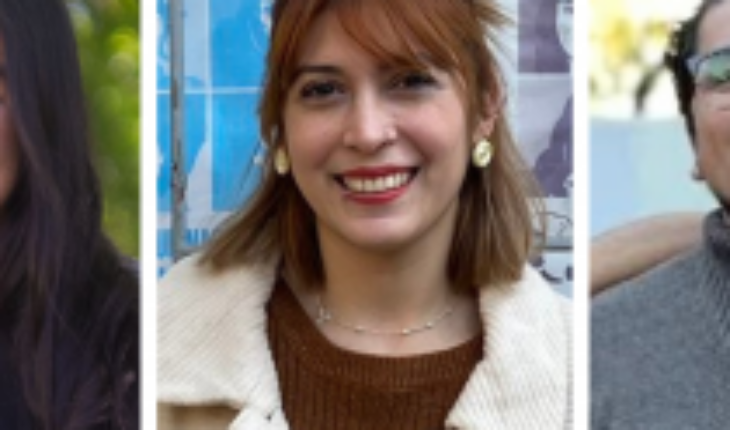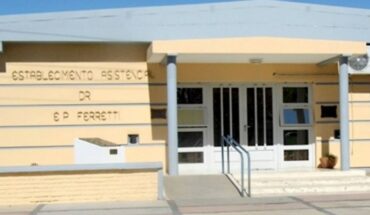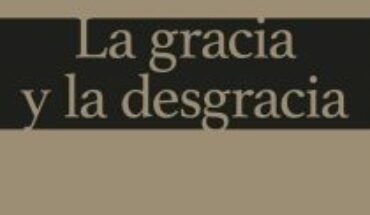After a vote held on July 2, and 65 days before the plebiscite called for September 4 in order to approve or reject the proposal for a new Constitution, the Confederation of Students of Chile (Confech) decided to support the option of the Approve. “We are aware that, for all this effort to be worthwhile, it is necessary to mobilize,” they said. A week later, the student organization decided, after carrying out a plenary, that they will participate in all the spaces for the Approval to those who are invited. It could not be otherwise, considering the role they have played in the mobilizations registered in the last decade, a period in which they became key actors in the process of challenging the “model” installed in dictatorship.
The students know that they have been plunged into a deep lethargy this last time, despite the fact that this March 11, 2022 it was a former student leader, Gabriel Boric (36), who arrived at the Palacio de La Moneda after having assumed as President of the Republic. Ten years earlier, in 2012, he assumed that same month the presidency of the Federation of Students of the University of Chile (FECH) and later the spokesperson of the Confech. This, after Camila Vallejo, current minister of the General Secretariat of Government (Segegob), was a year at the head of the students of the “Casa de Bello” and remained as vice president after an attempt at re-election.
“You guys have been screwing upside down with education. They have followed the business in education,” Boric told then-President Sebastián Piñera in 2013, during a visit that the former president made to Punta Arenas. “We came to Congress from different militancies, but with the conviction to fight for education and build a more just country. Today we have to assume the task of accompanying our President Gabriel Boric in the midst of a historic constituent process, “said the Minister of the Segegob, Camila Vallejo.
“Eight years later Giorgio Jackson peeled, and I with gray hair,” wrote the minister spokeswoman during the ceremony in which Boric took office. This together with a photo that was taken with the current minister of the General Secretariat of the Presidency (Segpres), one of the founders of the Democratic Revolution (RD). The meeting gave an account of the evolution of these life trajectories, and for the current student leaders it can symbolize what has most distanced them from the contingent political conversation, in the same way that the pandemic has done.
What are the students up to? Those consulted by El Mostrador acknowledge that the movement is weakened. On August 17 and 18, 2020, the elections of the FECH – founded in 1906 – for the period 2021 were held, for the first time online due to the health situation, and for the second consecutive year they did not reach the quorum. Only 14.33% of the students qualified to participate in the process cast their vote (4,562 votes validly cast). A year earlier, not enough votes had been reached to raise a federation, but they had been reached for the head to be assumed by the first three majorities. They were the current deputy Emilia Schneider (Commons), Nicole Martínez (RD) and Millaray Huaiquimilla (Communist Youth).
In 2021 there were no elections and in its place was raised, in 2022, an interim table created by the total of the presidents of the student centers of the faculties within the University of Chile. They had to elect a coordinating table, an instance that, for the moment, has not been able to conform.
In fact, the first protest after the beginning of the pandemic called by the Confech was on March 25 – two weeks after the arrival of Gabriel Boric to La Moneda – where with the slogan “a puro pan, a puro té, así nos tiene la Junaeb!”, they asked, among other things, for a modification in the Food Scholarship for Higher Education (BAES), since “$32 thousand monthly means $1,600 daily to eat.” They pointed out that the progressive increase proposed by the Government of $ 5,000 was insufficient.
“It was the first march that we called post-pandemic, understanding that it was not over, but that it was trying to return to a new normal,” described the former president of the Federation of Students of the University of Santiago (Feusach) and former spokeswoman for The Confech, the independent Noemí Quintana, former student of Architecture and who is currently studying the integrated master’s degree in Architectural Design.
“It weighs on us for not having committed us to all the edges of the constitutional process,” said the current spokeswoman of the Confech, Maite Estay. The also president of the Federation of Students of the Catholic University (FEUC), is a student of Civil Engineering, where she militates in the New University Action, a movement from which the Democratic Revolution was born, one of the key parties of the Government coalition.
He pointed to the pandemic as one of the phenomena that has affected the student movement. “The setbacks suffered in the face of the difficult economic situation produced by the health crisis of the pandemic, made many demands regress to the immediate.” He explained that in this economic context they saw it necessary to deepen their participation in the BAES struggle. He added that, in the midst of the “return to normalcy,” events such as harassment and intoxication of students occurred in the Metro, which led them to also focus on safety on the way to campuses and back home.
“Now, clearly we also wanted to participate in the Constitutional Convention process,” he stressed. He added that they supported a People’s Standard Initiative on education, and handed out flyers outside the Convention headquarters in support of it. “Despite the difficult context that we had to face as Confech, we managed to dedicate our efforts to consecrate a historical demand of students in Chile, which is public, free, quality and non-sexist education.”
Noemí Quintana, the former president of the Feusach, said that during the year in which she was spokesperson for the Confech they were following the process of the Constitutional Convention, especially through the conventional Constituent Social Movements (MSC) – such as the former constituents Alondra Arellano and Janis Meneses – attending meetings of this group and supporting their Popular Initiatives of Norma. However, as the president of the FEUC, explained that it was also necessary to “be solving contingency situations”, such as the BAES struggle and security on the way to the campuses.
Quintana described that in the Feusach of his period (until June 2022) – composed only of independents – they felt more identified with MSC than with the collectives within the Convention belonging to political parties, and this because “social movements go with flags of struggle for issues. For example, I have felt very convened by the 8M Coordinator, which addresses all the problems we have today from a gender, feminist perspective.”
“I was clicked to understand it that way when I begin to see, in my profession as an architect, that it is different to apply my career with a gender perspective. The fact that my male colleagues may not see that the nook and cranny in a street, for example, could be a scary factor for women on the street, I think it’s the same in politics. So, the work between social organizations with the emphasis on different themes is a joint work with perspectives from different areas, “he explained.
Inside the Usach, students who were very active in the protests of 2019, point out as problematic the federation of that year, which was linked to parties of the Broad Front, specifically to the Democratic Revolution. According to some sources, there were disagreements within the group and resignations accusing lack of probity and little transparency of the directive. Noemi Quintana and other students said that since that year disaffection with political movements has grown among students and there has been an increase in leaders who call themselves “independent.”
Rearticulating the Confech
“This year we proposed to rearticulate the student movement and take charge of the immediate and basic needs of the students, with a view to achieving a rearticulation that transcends those needs, and that focuses on the fundamental, which is the transformation of education,” said Maite Estay, spokeswoman for Confech.
According to the UC Engineering student, it is natural that the Confech has leaned towards the Apruebo, since “it was born in the middle of the social mobilizations that began to rise against the dictatorship in the year 84, seeking not only to recover democracy, but also to satisfy the demands that are still in force and that today are contained in a proposal for a new Constitution.”
The FEUC president described that there is also an attempt to “repoliticize the UC”, since they are concerned as a Federation about the levels of abstention. He explained that, as NAU – a political movement of which he is part within the UC – they believe that the proposed Constitution is the “right option for the Chile that comes.” However, he pointed out that “that does not mean that we are not critical. Mainly worrying how it was coThe political system and the lack of counterweights, the references to the legislator in matters that we believe should have remained in a constitutional rank, such as the attributions of indigenous territorial autonomies, certain limits that the justice system of indigenous peoples would have. But, in any case, we think that this Constitution enshrines in essence what Chile needs, and we will continue to make ourselves available to improve that text.”
With the change of the Feusach in June, Noemi Quintana, former president, released a statement that she wrote with the former vice president. “At the beginning of our positions we faced a disjointed organic, with a lack of a Federative Table for more than a year, with few careers with Student Centers, with a pandemic that little collaborated to generate instances of organization,” they wrote about the scenario they found.
With the emphasis on information
Estay explained that as Confech they have decided to participate in all the spaces for the Approval to those who are invited. He clarified, however, that in each house of studies, that is, in each student federation, there is a diagnosis that the main thing is to inform the students: “To be agents of a discussion that is informed, to be able to massify the text.”
He added that within the UC they will constitute information and discussion spaces so that “each student can freely make their decision, whether It is Approval or Rejection,” and that they are organizing a symbolic plebiscite inside the house of studies. “How is it going to help? In that the students get involved in a discussion that is being lived in our country, and that we do not lock ourselves in what happens inside the university.”
“The UC has historically been, and at the institutional level, a stronghold of conservatism. And that is not only reduced to wedges to El Mercurio, but to a political activity on the part of our institution to defend its interests, and sometimes at a giant cost to society. However, the UC community has consistently proven to be a counterweight to that totalizing image of what the Catholic University is,” he added.
According to Fabián Tapia, president of Feusach, a student of Pedagogy in Spanish and independent, “spaces do not have the weight they had before. What happens to the new leaders of 2022 is to raise this organic one again, to be able to shape the spaces as safe, increase participation and that students feel as represented as possible”.
And although the student federation he heads has a natural inclination to approve, he explained that, due to this disaffection with politics, “the goal is for information. I have to put all my strength, my capacity into what is being demanded of me, which is to combat fake news, to be able to explain the articles in the simplest way possible.” In this way, he said that, once the students have “an information floor”, they will make a decision.
“Finally we are going to have to reform either text. And the one that somehow allows people to do it in a more participatory way is the current proposal, where the same people can raise certain modifications,” he said. “The Refusal to reform seems to me a mockery of the right. It seems to me that, if in 30 years they could not agree, I think what they promise today is a bit of a shot in the air,” he said.
“Here it is not useful to be lukewarm, you have to take a position,” said Quintana, the former president of the Usach. He says that there were federations within the Confech that did not want to take a position until the students did.
According to the student leader, the federations have become “pure spokespersons. It is good that we represent the student body, but there are clear positions in each group. It has tried to be a more direct democracy, but it generates slower processes, and we are late to the discussions,” he explained.
“You have to understand that personally you may not agree with all the articles. We must understand it as a general framework where we will later have certain challenges. It’s not all set in stone. Quorums change with this new Constitution,” Quintana said.
And she was emphatic in stating that “the ultimate goal is greater. We should leave our feet in the street for approving this new Constitution. There is so little time we have, that all the energies should be given to this, but that is already the decision of each federation.” In addition, he referred to the need for “strong spokespersons” within the student world in the face of the plebiscite.
Law is one of the faculties that within the University of Chile indicate as one of the most mobilized in the face of the exit plebiscite. And on Friday, July 15, held an internal plebiscite in order to define the support, or not, for the proposal for a new Constitution. 80.5% of voters expressed their approval of the text, of the nearly one thousand who participated.
Months before, a law student who integrates Social Convergence, Pablo Ferrera, and two law students and independents, raised a command for the Apruebo inside the faculty, which has about a hundred students mobilized. They assure that they will not join the command of the Approval of the ruling parties (Broad Front, PC, FRVS, and the Democratic Socialism integrated by the PS, the PL and the PPD), except for calls for coordination.
Camila Requena, the president of the Center for Law Students and independent, explained that the key role of students, especially their career, is to download the information, since many times the rules are written in technical language. “Our responsibility is to bring this closer together in simple,” he said. Thus, he assured that “in front of the moment we must take positions, we are in a moment in which inertia should not occur. Less so when there is misinformation breathing on us.”
“The risk is very high,” he said. “There are no spaces here for double interpretations: it is approved or rejected. If the latter happens, the risk is huge, because, on the one hand, we are not going to have another Constitution probably, but we are going to stay with the one of 80. The plebiscite has already been done, and the people have already decided that it should not be made only by lawyers. If we go for the Approval and we are leaders, we must understand that this means contributing to the changes. The country needs us to take to the streets, talk to people and inform,” he added.
The University of Valparaíso (UV), like the FECH, due to low student participation, does not have a student federation formed. Instead, it was voted by representatives of each race. Lucas Ortega, part of the Interim Table of the UV, representing Pedagogy in Mathematics, described that “the spaces for debate and political movements have been greatly diminished by this pandemic. The generation of 2019 spent almost a year in the university, and after two years in virtuality, they come to face the current political situation.” In this way, he said, for students the amount of information can become overwhelming, and that is why “one has to think about how I get the information in an attractive way.”
Follow us on





